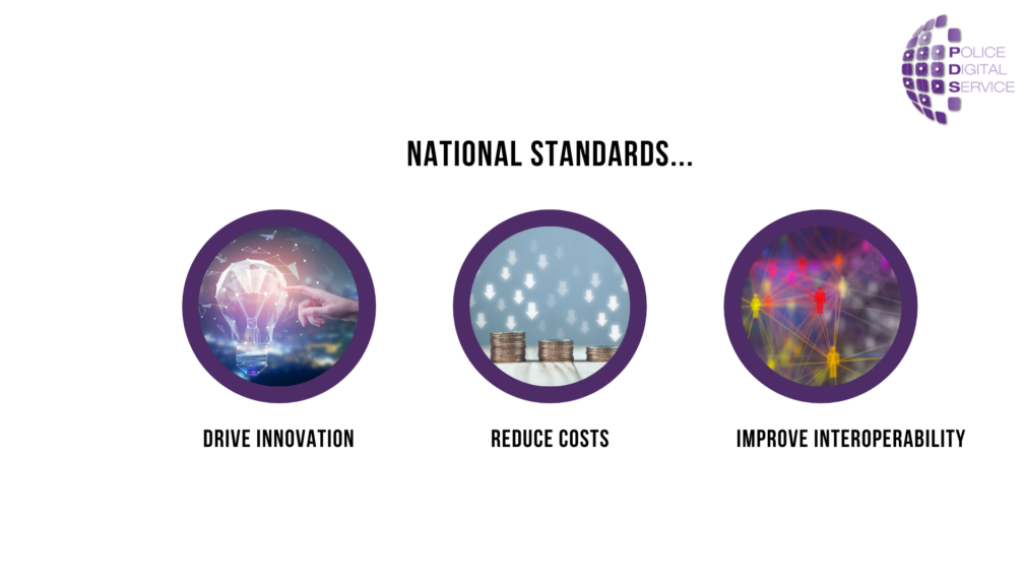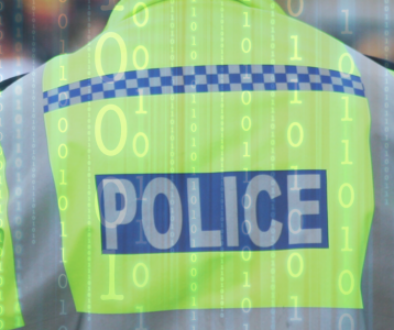People & Projects at PDS – A deep dive into the National Standards with Brendan Johnston
I joined the Police Digital Service (PDS) in 2020 at the start of the first lockdown, having spent 20 years managing technical teams in finance. I was tasked with establishing an accessible standards service for both policing and the private sector.
Introduction – what are the National Standards?
We introduced the National Standards for digital, data and technology (DDaT) in policing in 2020, following the launch of the National Policing Digital Strategy.
The Standards have been selected or designed in close partnership with forces to ensure that they met and continue to meet the needs of policing. They exist to help forces maintain a consistent level of quality and aid the implementation of DDaT projects, as well as minimising reworks and avoiding duplication. They will also help to avoid future additional costs to retrofit non-standard designs in line with national platforms and interoperability.
How are the National Standards being created?
The published Standards are easily accessible and searchable for forces on the National Standards platform. We also welcome requests for additional Standards and encourage your engagement with proposed and upcoming additions; ultimately these Standards are created for and with policing, so it’s crucial to us that your feedback is reflected during their development.
The governance structure which has been created around the National Standards means that the views of 43 police forces are engaged nationally when considering requests for new Standards, or changes to existing ones. The governance consists of a community of practitioners and leaders who represent all areas of policing. This joined up approach allows the Standards to be kept useful and used across all sections of policing, including procurement frameworks, cyber essentials and regulatory requirements.
We take an agnostic approach to where Standards originate from, as long as they meet the needs of policing. This means we have a mix of Standards which come from industry, public sector and other law enforcement agencies.
Next steps
There are currently over 142 National Standards available on the platform, with more being added regularly. Our next step, working within the governance structure, is to make decisions about which Standards to implement in the near future. As those decisions are made, we will then work with forces across the UK to understand what barriers there may be to the adoption of Standards, and how we can work collaboratively to remove those barriers.
The POLE Standard
The Assurance Board are currently rolling out our People, Object, Location, Event (POLE) Standard. This Standard is unusual in that it is the first one that has been designed specifically by PDS for external use. When possible, it is always better to use existing Standards that already have a presence in industry however, in this case, there were no pre-existing Standards which met the unique needs of policing, so we have worked closely with forces to develop one which does.
POLE went through an extensive consultation phase, yet forces have identified a number of issues while adopting it. We are currently working to remedy them by creating additional artefacts such as a data model to go with the Standard.
The Board will continue to do this with every new set of Standards that are implemented to make it as straightforward as possible for forces to adopt them.
Final considerations
Ultimately, our aim with National Standards is to improve the interoperability of policing platforms, as well as accessibility and data quality. It’s crucial that there is further alignment of policing systems going forward as national platforms or services are increasingly considered.
Brendan Johnston
Did you like this article? Was it useful?
We would appreciate your feedback and any suggestions for new articles you would like to see in this space. Please, get in touch with us using our contact form.




